Mystical agricultural terraces of the Inca Moray
The list of spectacular and fascinating ruins of the Inca civilization can undoubtedly include Moray, an archaeological site in Peru, about 50 kilometers northeast of the city of Cuzco and just west of the village of Maras. They represent a large bowl-shaped depression, in which a series of concentric terraces are constructed, looking like an ancient Greek amphitheater. The purpose of these terraces is not known for certain, but the most common and plausible version claims that they were used as an "agricultural research laboratory".
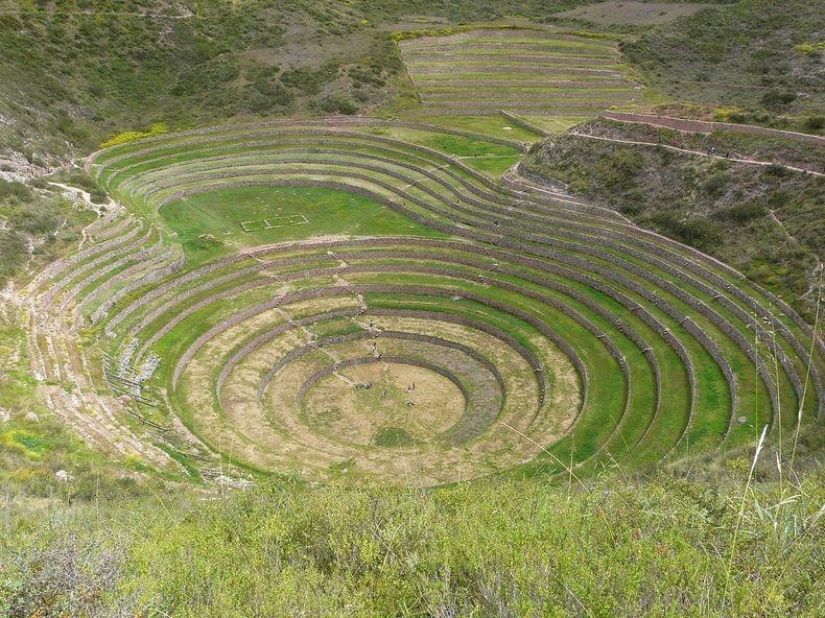
The largest terraces are located in the center – they are gigantic in size and descend to a depth of about 150 meters, leading to a round bottom. Six additional ellipse-shaped terraces surround the concentric "heart" of Morai. Eight terraces-steps rise above all this, which capture only part of the perimeter.
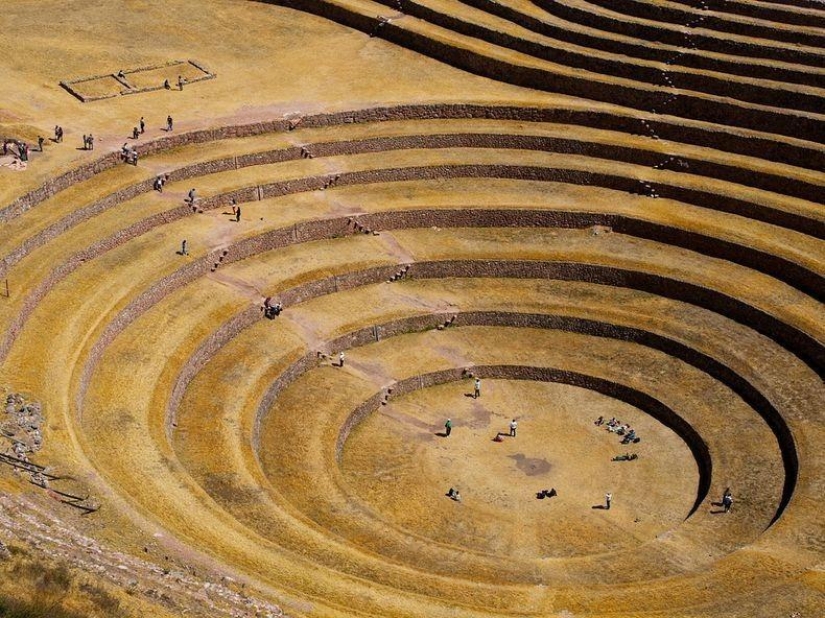
The concentric terraces are connected by numerous staircases, which are stone ledges that allow people to move between the top and the very bottom of the bowl.
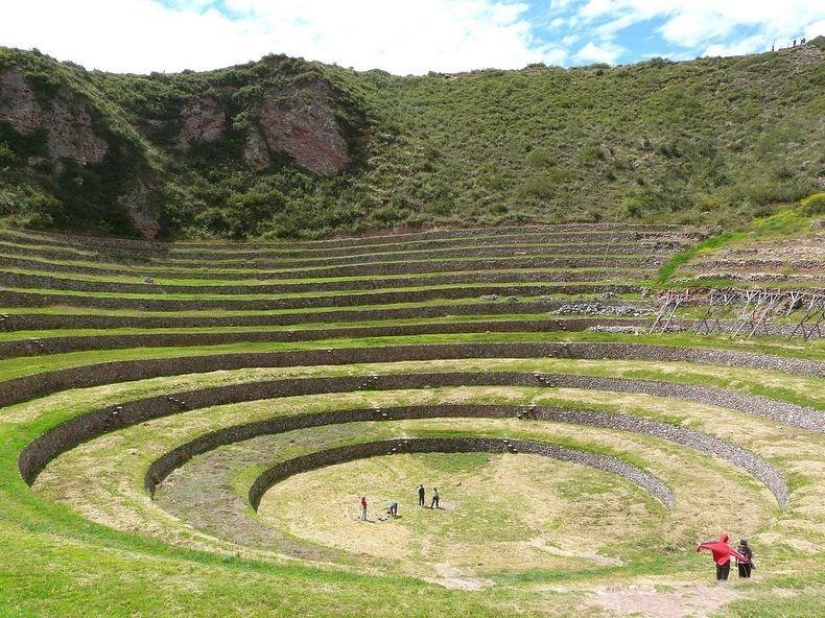
One of the most notable features of this place is the temperature difference between the upper and lower levels, reaching 15 °C. Such a large temperature difference creates different microclimates. The effect is similar to the use of modern greenhouses. Perhaps the Incas thus studied the influence of various climatic conditions on the harvest.
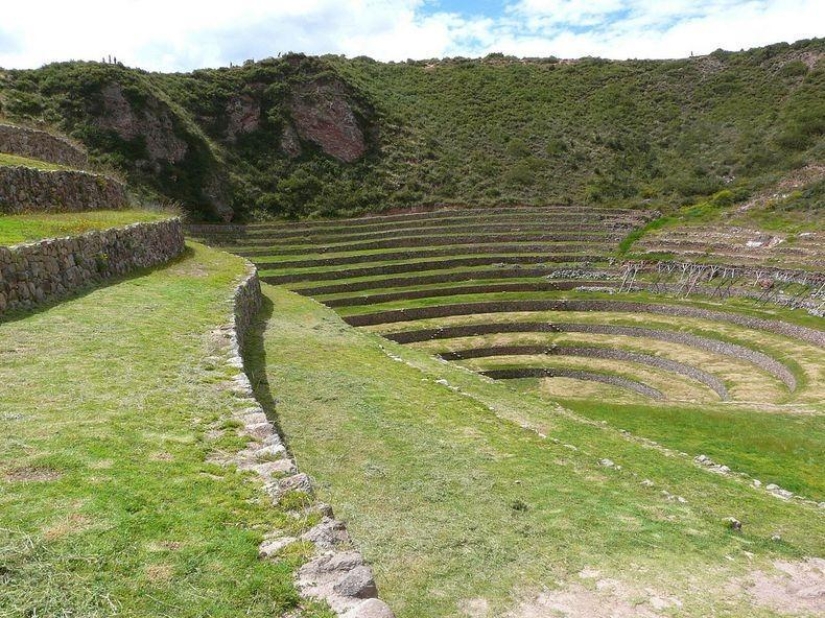
It is not just a coincidence that the temperature difference between the terrace levels corresponds to the natural difference between coastal agricultural land located at sea level and high-altitude agricultural land in the Andes at an altitude of 1,000 meters above sea level.
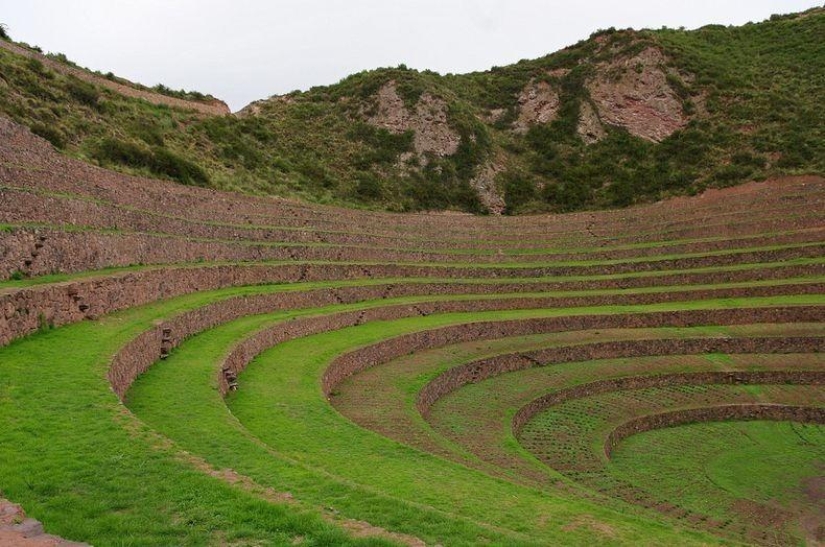
Moreover, pollen analysis of the soil shows that soils from various regions of the Inca Empire were specially imported to Moray. Each of the large central terraces contains soil from its own region.
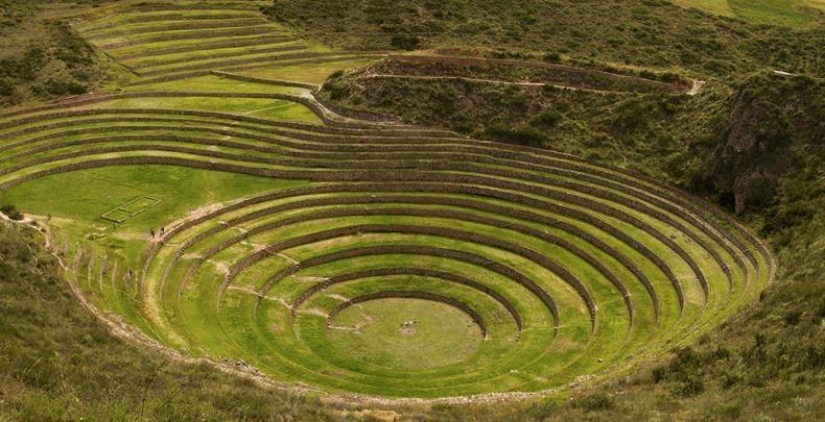
Currently, it is believed that the terraces of Moray were used by Inca priests-scientists to experiment with the harvest of vegetables, in order to determine which crops should be sown by farmers in their fields throughout the Andean region.
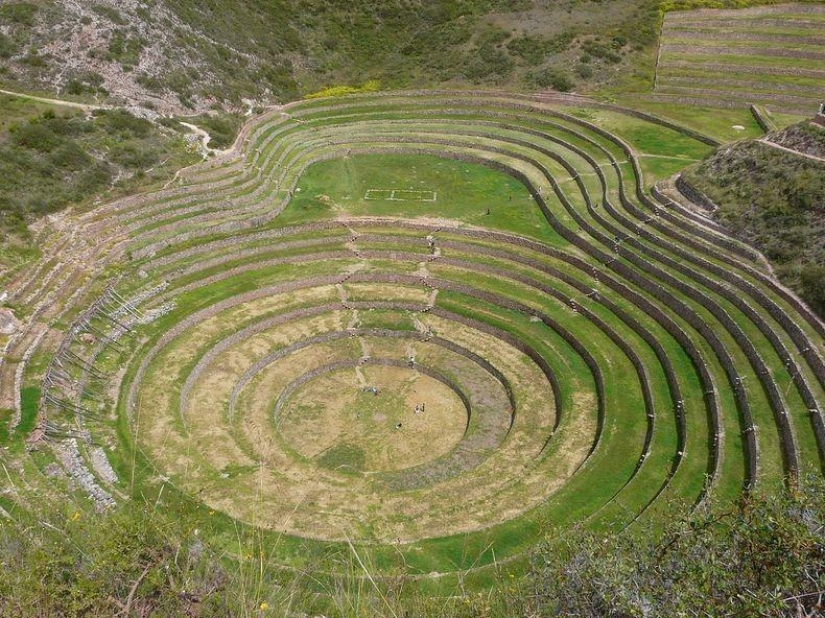
Another mystery is how the drainage system worked for the water coming through the aqueducts. The lower level, that is, the bottom of the bowl, has such good drainage that it never completely floods even during the most heavy rains.
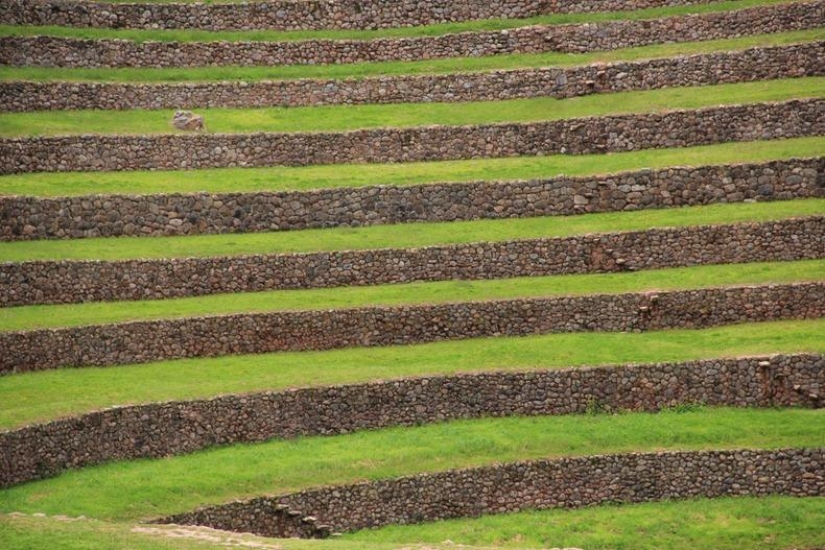
It is assumed that underwater channels are laid under the terraces, which ensure the outflow of water. There are also disputes about the fact that there is a natural porous stone under the bottom, the structure of which allows water to go deep into the earth.
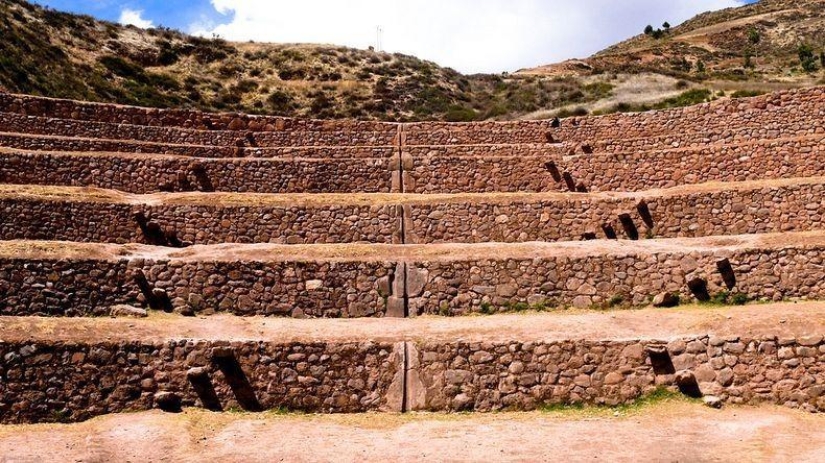
We will most likely never know the true purpose of the Morai terraces, but the version of the "laboratory" for agricultural research looks very convincing. An additional confirmation may be the fact that about 60% of all food crops in the world originate from the Andean region, including hundreds of varieties of corn (maize) and thousands of varieties of potatoes.
Keywords: Archeology | Peru | Terrace
Post News ArticleRecent articles

It's high time to admit that this whole hipster idea has gone too far. The concept has become so popular that even restaurants have ...

There is a perception that people only use 10% of their brain potential. But the heroes of our review, apparently, found a way to ...
Related articles

Residents of the Peruvian city of La Rinconada, located in the Andes near the border with Bolivia, live at the altitude of 5100 ...

Everyone has heard about five-star hotels, and many have even been able to experience their high level of service and comfort. But ...

Amazing photos of an ancient tribe of Amazons give an opportunity to look into their life in the depths of Peru. Militant women ...

New Year's is a time to surprise and delight loved ones not only with gifts but also with a unique presentation of the holiday ...